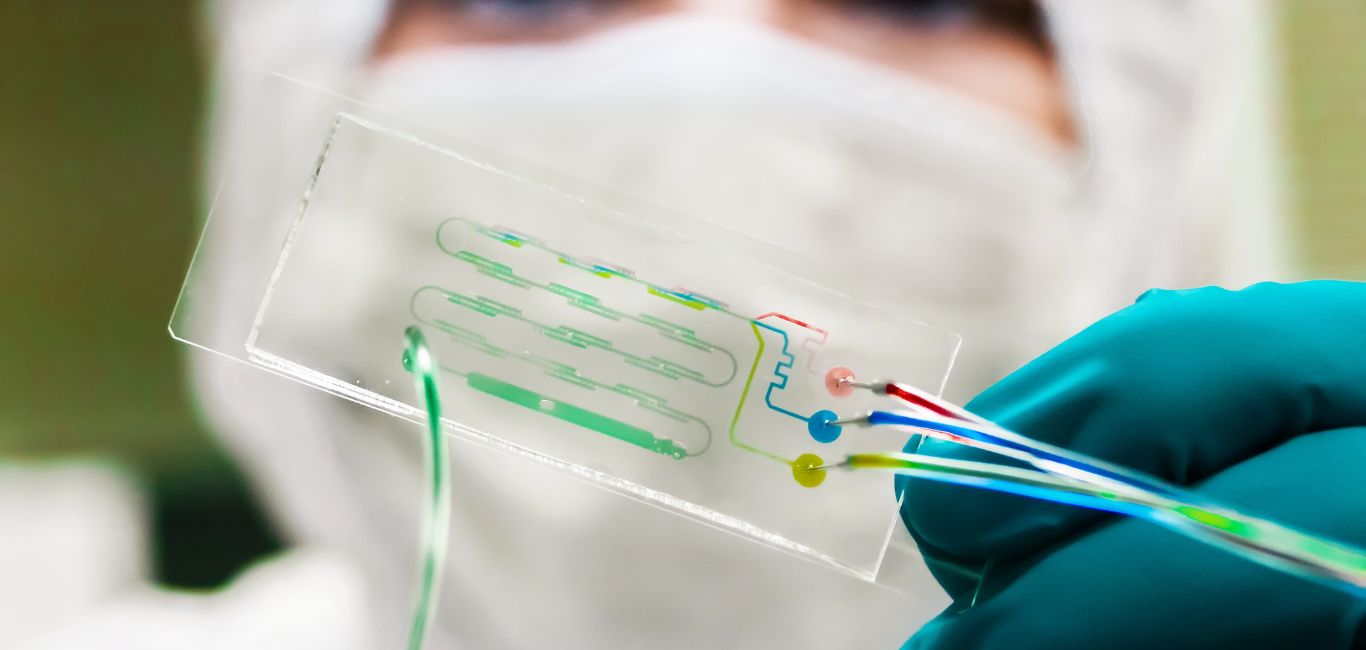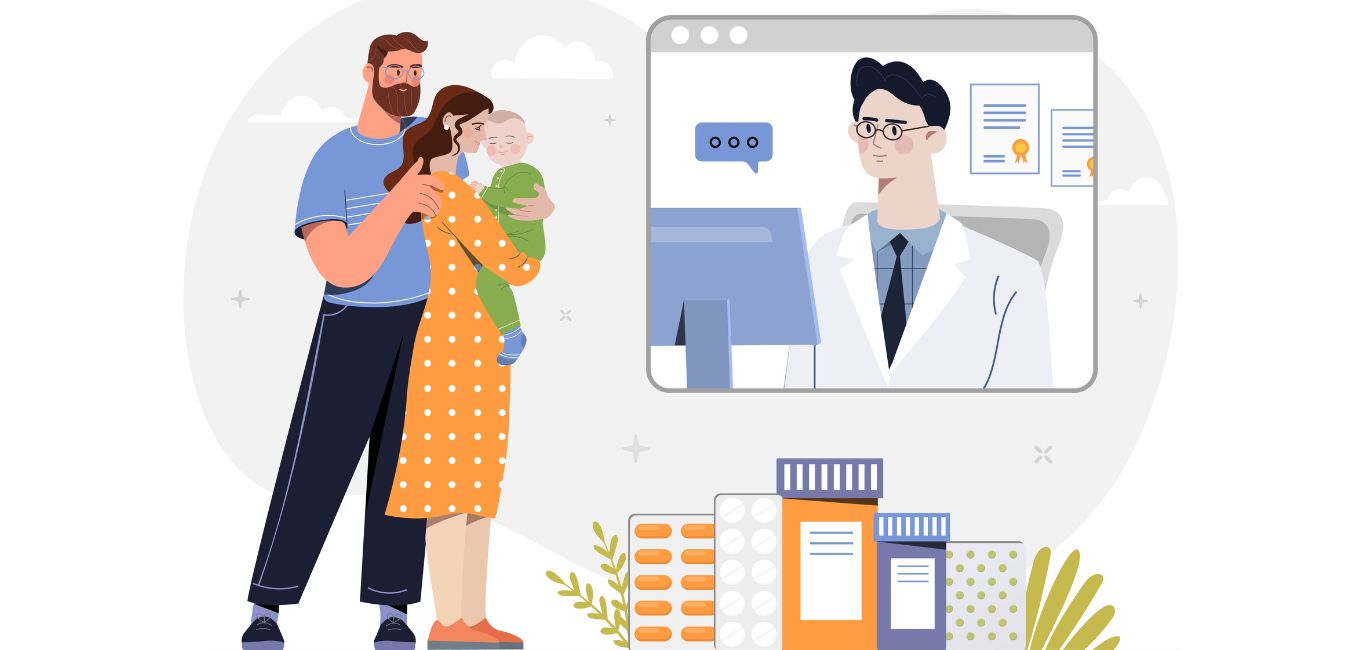
When John Chen entered medical school at McGill University in Montreal, he quickly realised the limits of the traditional medical education model. With over 250 students crammed into lecture halls and little opportunity to ask questions, Chen saw an opportunity for technology to augment the learning experience.
He founded RadiantAI, a medical chatbot that allows students like himself to query a knowledge base of content that is expert-reviewed and in plain language.
From startups to the biggest companies on the planet, many are exploring avenues for artificial intelligence (AI) in healthcare. For now, most roads converge on a user-friendly form of AI — the chatbot. From Google’s Med-PaLM to IBM Watson, the role of AI in medicine, for now, follows a question-and-answer format.
AI doctors to burgeon
But with great knowledge comes great responsibility. For large language models (LLMs) trained on the general internet, like OpenAI’s ChatGPT, one of the biggest challenges has been how to prevent them from giving medical advice too confidently. With health queries, chatbots cautiously share information, emphasising professional medical advice.
Even so, the hope is to make LLMs better at handling medical information. “Doctors who use AI will outcompete doctors who do not,” says John Chen, CEO of startup RadiantAI, which has trained AI on medical references to generate “evidence-based answers”.
The hope is that doctors will no longer have to consult hefty medical textbooks mid-consult, something Chen saw when shadowing a family doctor.
“This process is time-consuming, expensive and is ultimately not the best user experience. In this setting, RadiantAI streamlines the medical information verification phase, improving clinic throughput and healthcare outcomes,” he says.
Google’s health AI bet
In June, Google shared advancements to its large language model Med-PaLM, including the ability to correctly answer complex medical exam questions at the same rate as physicians. In December 2022, Med-PaLM became the first AI system in the world to score over the 60 per cent passing grade needed to clear the United States Medical Licensing Examination (USMLE). Med-PaLM 2 raises the bar – with an 86.5 per cent accuracy on “USMLE-style questions”, according to a Google news release.
But clearing an exam does not a doctor make. Google is clear that it sees this AI as a tool, not a substitute, for doctors.
“With models like GPT-4 and PaLM, we have outstanding general purpose intelligence substrates. However, these models are like a very smart friend of yours – broadly knowledgeable about a broad range of topics – so they can talk to you about politics and poetry and philosophy and Penrose theory and what not – but when you need medical advice or have a concern, do you go to this friend? No, you go to a doctor who has undergone rigorous training and is licensed to practise,” Vivek Natarajan, research scientist, Google Research tells Happiest Health.
But even doctors need help. “No human can possibly ever read the whole of Wikipedia, or all published scientific literature and so it is necessary to use such AI systems as knowledge reservoirs and libraries to keep up with the amount of information and knowledge that is being generated today,” Natarajan says.
Like a consultant who examines a company’s processes and streamlines them for better results, Google hopes AI can improve the efficiency of storing and analysing patient data. One company that has begun trials with Med-PaLM 2 is MEDITECH.
“With Med-PaLM 2 embedded into MEDITECH’s EHR (electronic health records), a clinician could ask questions about a patient’s condition and identify relevant results that include patient records, clinical guidelines, and research articles. AI systems could also help to automate the generation of clinical documentation, like discharge summaries and nursing shift change summaries, helping healthcare professionals save time and improve the efficiency of care delivery,” Natarajan says.
Safety issues
Hospitals like the Mayo Clinic have been testing Google’s updated AI chatbot, Med-PaLM 2, since April. But unleashing AIs on sensitive health data raises ethical concerns. For starters, the models are only as good as the data they are trained on and the annotators that review them. Bias and inaccuracies in datasets can lead to potentially dangerous responses. There is also the question of accountability if an AI makes a faulty diagnosis or treatment recommendation.
Google says their development of Med-PaLM stresses the quality of tokens and information that goes into the model, with feedback from a pool of clinicians of diverse backgrounds being used to teach the model.
Reverse testing
Sometimes, you only know how something works when you figure out how to break it. This is why companies like Google perform “adversarial testing” on their AI products – deliberately feeding malicious or inadvertently harmful prompts to the model to see how it responds.
“We comprehensively test models on diverse datasets including adversarial questions, sensitive topics such as vaccines, medical misinformation, mental health as well as pay attention to aspects like bias, harm and equity to ensure it is providing safe and accurate information,” Natarajan says.
Both Google and RadiantAI stress AI-human collaboration, rather than replacement of doctors. The goal is using technology to complement physicians by automating rote tasks, surfacing relevant research, and explaining complex information to patients.
Artificial made intelligent
While much of the excitement around today’s AI revolves around its perceived “intelligence”, computers cannot replace humans in abstract thinking. LLMs predict responses statistically and not symbolically, making medical chatbots impressively fluent but lacking structured reasoning.
“Regular LLMs or chatbots are just next-token predictors. Based on the training data they have ingested, they sample and predict the next most likely token, which makes the conversation seem fluent, reasonable and even logical. However, because they are performing a statistically guided inference, there is no structured, symbolic reasoning underpinning the chatbot’s response,” says Chen.
But humans, too, have their flaws. The push for more AI in hospitals is largely driven by the need to reduce misdiagnoses and doctor load.
“LLMs solve the use case of getting high-fidelity medical information in a timely manner, customised to the individual comprehension level and personalised tastes of the medical learner. Currently, medical learners [medical students, medical residents and staff attending physicians] pay thousands of dollars annually for access to high-quality medical information,” he adds.
Chen says resources of current medical information — such as textbooks and websites — are cumbersome to use, with poor user interfaces that only allow searching one symptom at a time. He wants to leverage recent advances in LLMs to provide healthcare practitioners a more natural way to access information by asking questions in plain language and getting relevant evidence-based answers quickly.
Google too, is keeping doctors in mind.
“Medical professionals should embrace AI as a powerful assistive technology that can help them make better decisions, save time, access additional insights, enhance diagnostic accuracy, and boost their ability to deliver excellent care and improve health,” notes Natarajan.
In a chat window near you
India is fast emerging as a hotbed for healthcare AI innovation. Anuruddh Mishra, founder and CEO of startup Beyond, decided something had to change after he spent four months running around following a misdiagnosis of rheumatoid arthritis. With Beyond, his company has launched August, an AI designed to be “everyone’s AI health companion”.
The pressing need to connect a person having a health query with health information that is credible and tailored can be seen in the fact that there are over a billion health-related queries on Google each day, notes Mishra. “August is designed to help people understand their health, get personalised information about health questions and to proactively care,” he says.
Mishra says August, which scored 94 on USML, is the top health AI in the world on a range of benchmarks.
Towards a one-stop solution
He envisions August as an all-in-one tool for health queries, nutrition plans, and even doctor’s appointments.
“We want August to be the do-it-all health companion. Every day we’re adding new capabilities. We recently went live with prescription reading because our users wanted to understand their medication,” says Mishra. With integrated memory, August AI can provide personalised responses tailored to a user’s health data, something Happiest Health also saw after trying the chatbot out.
The system is trained by doctors to ensure clinical accuracy. “Safety has to be top of mind when building in health and it has been something we’ve thought very deeply for,” notes Mishra. Like other healthcare AI makers, August AI stresses doctor collaboration rather than replacement.
“AI can definitely make the relationship more patient-centric. Today, when someone has a health issue, they get 20mins with a doctor and outside of that, they are largely left to figure things out on their own. [Now], people are already getting their pre and post consultation doubts cleared using August. They are even preparing for doctor consults by using August,” he shares.
Personalised health
While medical practitioners often lament that individuals seeking treatment use “Google doctors”, the access and availability of curated medical information for end users is only set to increase. Google says it is implementing the latest versions of PaLM 2 in generative AI tools like Bard.
Personalising a healthbot to an individual’s unique medical history is the next holy grail for AI-makers.
“One of our major milestones for next year is to incorporate personalised chat into our chatbot and train on user personalised data. This enables our machine learning system to learn how to effectively communicate information back to a clinician, based on their personal preference, such as whether they prefer short form, tabular or textbook-type responses,” says Chen.
It is important to take the advice of chatbots with some grains of salt. As Natarajan notes, “The best AI model is only a technology; health is human. Health requires human judgement and contextual understanding — such as a care provider’s ability to read between the lines or understand the health burdens associated with patients living in a certain postcode.”

















